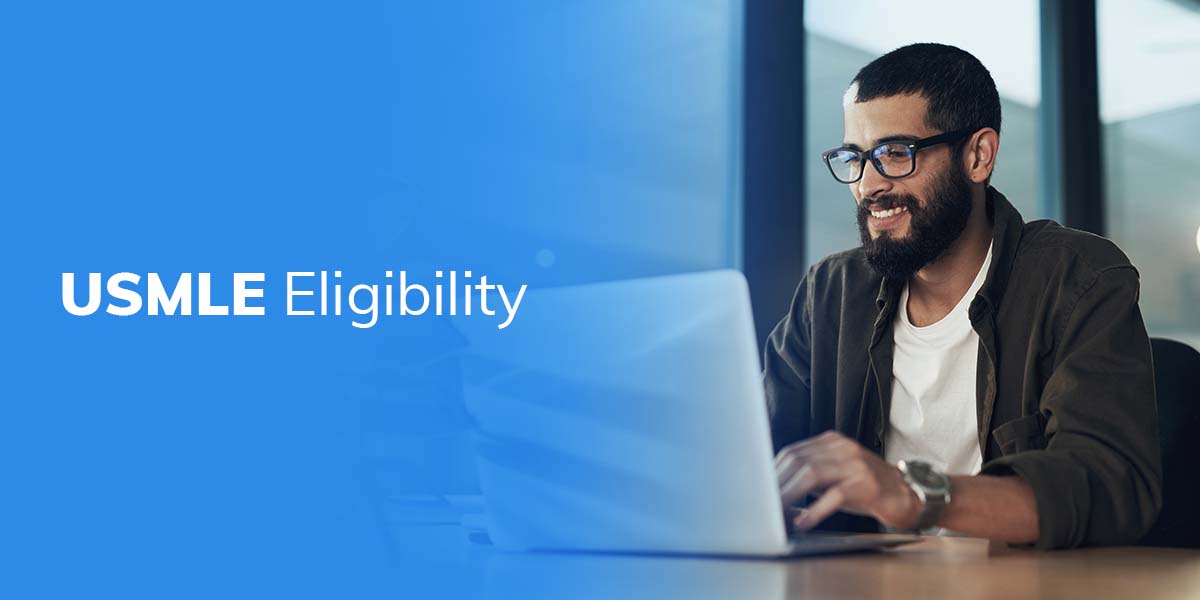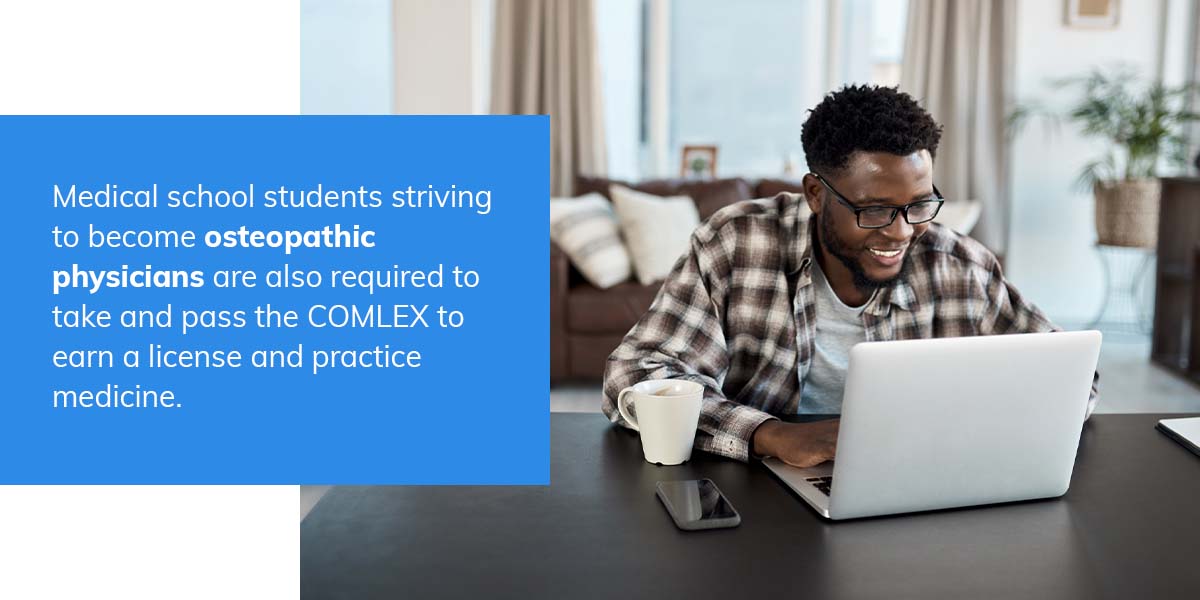
Passing the United States Medical Licensing Exam is essential to becoming a doctor and earning your license to practice medicine in the U.S. The USMLE has three steps designed to test your ability to apply various concepts and principles learned in medical school. If you want to practice medicine in the United States, you’ll need to ensure your eligibility before attempting and passing all three steps of the USMLE.
If you’re unsure when to take the USMLE, what institutions are on the USMLE medical school list or what the different USMLE requirements are, review this guide to understand more.
The Requirements to Take the USMLE Step 1
Step 1 of the USMLE tests your fundamental scientific knowledge as it applies to health care, including pathology, immunology, microbiology and anatomy. The first step of the USMLE is the most challenging. To pass, you will need to practice consistently and learn step 1 study strategies. A lot of students seek out professional step 1 tutors in order to ensure they pass.
You’ll need to meet one of a few different requirements before you’re eligible to apply for and take the USMLE steps 1 and 2:
- Being enrolled in, or a graduate of, a U.S. or Canadian medical school program leading to the M.D. degree accredited by the Liaison Committee on Medical Education
- Being enrolled in, or a graduate of, a U.S. or Canadian medical school program leading to the D.O. degree accredited by the Commission on Osteopathic College Accreditation
- Being enrolled in, or a graduate of, a medical school outside the U.S. or Canada, listed in the World Directory of Medical Schools as meeting ECFMG eligibility requirements and criteria
If you drop out of or otherwise fail to complete medical school, you are not eligible to apply to take the USMLE, regardless of whether you’re appealing the school’s decision to dismiss you.
Step 1 of the USMLE takes approximately eight hours to complete and requires serious, judicious preparation. The first exam is rigorous, and there are many reasons medical students fail it.
Most people take step 1 of the USMLE during their second or third year of medical school. Beginning Jan. 1, 2022, the first step will be pass/fail.
The Requirements to Take the USMLE Step 2
Criteria to take the USMLE step 2 are the same as for step 1. The second part of the USMLE tests your ability to apply your medical knowledge and skills to patient care, emphasizing areas such as disease prevention and health promotion.
This exam consists of two separate tests — Clinical Knowledge and Clinical Skills. You can expect to take these tests on different days, with each lasting approximately nine hours.
USMLE part 2 CK is more of a traditional exam. However, the USMLE part 2 CS portion places you in a clinical environment and tests your ability to assess patient health concerns using actors as the patients. USMLE part 2 CS consists of 12 patient encounters, each lasting 15 minutes, and is the first real test of your ability to provide care to patients. This portion of the test is pass/fail, so preparing and studying for this exam is crucial to achieving your goal of becoming a licensed physician in the U.S. Test preparation is highly common for Step 2.
The Requirements to Take the USMLE Step 3
Step 3 of the USMLE is a two-day exam typically taken during your residency program. This test is your final milestone before reaching your goal of becoming a licensed, practicing physician and deserves some recognition. You’ve worked hard to get to this point in the journey, so careful preparation and study are paramount if you want to pass step 3 of the USMLE.
Requirements to take the USMLE step 3 include:
- Passing scores on step 1 of the USMLE and step 2 of the USMLE CK and CS
- An M.D. or D.O. degree from an accredited LCME or COCA medical school located in the U.S. or Canada, or the equivalent of an M.D. degree from an approved institution outside the U.S. or Canada listed in the World Directory of Medical Schools
- Meet all other eligibility criteria listed in the official USMLE website’s Bulletin of Information
Once you’ve successfully applied for and passed step 3 of the USMLE, you’re eligible to become a practicing licensed physician in the U.S. To help clear up any confusion, we’ve answered some of the most asked questions below.
Are Osteopathic Physicians Eligible to Take the USMLE?

Osteopathic doctors and physicians are eligible to take the USMLE and become licensed physicians. Medical school students striving to become osteopathic physicians are also required to take and pass the COMLEX to earn a license and practice medicine. Generally, osteopathic physicians do not complete a residency, so they don’t take USMLE step 3.
If an osteopathic physician decides to take the USMLE, they must report those scores along with their COMLEX scores to the governing board. You’ll want to be certain you’ve prepared to pass your USMLE steps if you’re a prospective osteopathic physician.
Are International Medical Graduates Eligible to Take the USMLE?
Meeting USMLE eligibility for international students can be tricky. It is impossible to take the USMLE without med school, so international students must have an equivalent degree from an approved institution listed in the World Directory of Medical Schools. There is a lack of clearly defined eligibility requirements to take the USMLE for foreign students, and eligibility rests solely on the status of the institution from which you received your medical degree.
Are Graduates From Non-Accredited Institutions Eligible to Take the USMLE?
According to the USMLE organization, if you graduated from an unaccredited medical school in the U.S. or Canada and are eligible for initial licensure as a physician by a U.S. medical licensing authority, you can take the USMLE upon specific request by that organization. The licensing authority should submit a request to the USMLE Secretariat before you apply to take each of the three steps that comprise the USMLE test.
Is There an Age Limit for the USMLE?
Candidates for the USMLE must be current enrollees or recent graduates of an accredited medical school program. Taking the USMLE without med school is not possible, but there is no age limit for the USMLE. Candidates are never too young or old to apply and take the USMLE series of tests, regardless of age.
Is the USMLE Accepted in Canada?
Since the USMLE aims to create a universal testing system for doctors practicing in the U.S., Canada does not recognize this exam. The equivalent of the USMLE for Canadians is the Medical Council of Canada Evaluating Examination. Prospective physicians who have previously applied for and passed the USMLE and wish to practice in Canada can write to the Medical Council of Canada and other governing medical boards to ask for an exception.
Do USMLE Scores Expire?
Yes, USMLE scores expire after seven years. If you’ve taken and passed one of the three steps of the USMLE more than seven years ago, you’ll need to retake that step. If you do not take and pass all steps of the USMLE within seven years of the first step, you’ll have to retake that part of the test.
Once you pass a step of the USMLE, you’ll have seven years to take and pass the remaining steps. The seven-year period starts on the exam date of the first step or step component and ends seven years from that date.
Study for Your USMLE With Medlearnity
Are you preparing to apply for and take any step of the USMLE? Passing the three steps of the USMLE is essential to becoming a licensed physician and practicing medicine in the United States.
Medlearnity’s professional USMLE tutors have the knowledge and experience needed to prepare you for success on the USMLE. They have trained at the top hospitals in the country, and have average scores over 260 on the various steps of the USMLE. With our proven results and success by your side, you’ll have peace of mind knowing that you’re studying and preparing with help from the best.
For over eight years, Medlearnity’s resources have helped hundreds of aspiring physicians realize their goals and succeed on the USMLE. Our comprehensive resources, such as medical tutoring and consulting, will prepare you to pass each step of the USMLE with confidence. Don’t take our word for it — read some of the testimonials from hundreds of students we’ve helped. Get started with Medlearnity today and forge a path to success!

